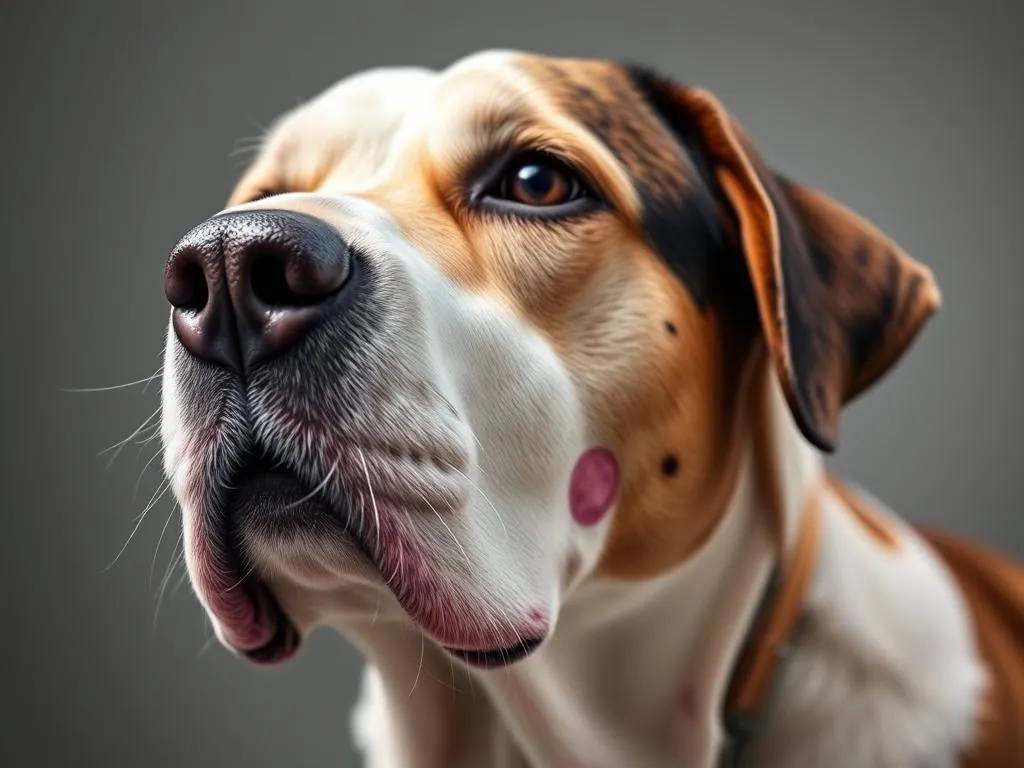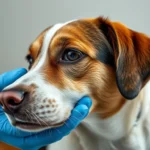
Introduction
Swollen lymph nodes in dogs can be a concerning sign for pet owners. Lymph nodes are small, bean-shaped structures that play a crucial role in the immune system by filtering harmful substances and producing immune cells. When these nodes become enlarged, it often indicates that the body is fighting an infection, dealing with inflammation, or potentially facing a more serious condition such as cancer. Recognizing the signs of swollen lymph nodes is essential for the health and well-being of your furry friend. This article aims to educate dog owners about the causes, symptoms, diagnosis, treatment options, and when to seek veterinary care regarding swollen lymph nodes.
Understanding Lymph Nodes
What Are Lymph Nodes?
Lymph nodes are essential components of the lymphatic system, which is part of the immune system. They act as filters for foreign particles and play a crucial role in the body’s defense mechanisms. In dogs, lymph nodes are located throughout the body, including:
- Submandibular (under the jaw)
- Prescapular (in front of the shoulder)
- Popliteal (behind the knee)
Each of these nodes can swell in response to various health issues, making it important for dog owners to understand their functions and locations.
The Role of Lymph Nodes in Health
Lymph nodes help the body fight infections by trapping bacteria, viruses, and other pathogens. When an infection occurs, the lymph nodes produce more immune cells, leading to an increase in size. This swelling is a natural response that indicates the immune system is active and working to restore health. Additionally, lymphatic drainage is vital for removing waste products and toxins from the body, contributing to overall health and well-being.
Causes of Swollen Lymph Nodes in Dogs
Infections
One of the most common causes of swollen lymph nodes in dogs is infections. These can be:
- Bacterial: Such as those caused by bites or wounds.
- Viral: Canine parvovirus and distemper are notable examples.
- Fungal: Infections like histoplasmosis can also lead to swollen lymph nodes.
Certain diseases like Lyme disease and ehrlichiosis can result in lymphadenopathy, indicating the presence of an underlying infection.
Inflammatory Conditions
Inflammatory conditions, including autoimmune diseases, can also lead to swollen lymph nodes. Conditions such as lupus or rheumatoid arthritis may cause the body to react by enlarging lymph nodes as part of the inflammatory response. Allergic reactions, such as those to insect bites or food, can also trigger lymph node swelling.
Neoplasia (Cancer)
Swollen lymph nodes can sometimes indicate cancer, particularly types like lymphoma or mast cell tumors. Lymphoma is one of the most common cancers in dogs and often presents with enlarged lymph nodes. It’s important to recognize signs that may point to cancer, such as persistent swelling and other systemic symptoms.
Other Medical Conditions
Various other medical conditions can lead to swollen lymph nodes in dogs. For example, dental disease can cause local lymph nodes to swell due to infection in the mouth. Systemic diseases, such as hyperthyroidism or certain metabolic disorders, may also be associated with lymphadenopathy.
Symptoms of Swollen Lymph Nodes
Physical Signs
Swollen lymph nodes can typically be identified through physical examination. They may appear larger than normal, feel firm, and can be located in various areas, including the neck, under the jaw, and behind the knees. Other physical signs that may accompany swollen lymph nodes include:
- Fever: Elevated body temperature can indicate an underlying infection.
- Lethargy: A noticeable decrease in energy levels can be a sign of illness.
Behavioral Changes
Dogs with swollen lymph nodes may exhibit changes in behavior, such as:
- Decreased appetite or reluctance to eat.
- Changes in drinking habits, such as drinking less water.
- Signs of discomfort or pain, such as avoiding touch around the swollen area.
Associated Health Symptoms
Swollen lymph nodes may also be accompanied by various health symptoms, including:
- Coughing: Could indicate respiratory involvement.
- Vomiting or diarrhea: May suggest gastrointestinal issues associated with infections.
Diagnosis of Swollen Lymph Nodes
Veterinary Examination
When you take your dog to the veterinarian, they will conduct a thorough examination. The vet will palpate the lymph nodes to check for size, consistency, and tenderness. They may also assess the overall health of your dog, looking for signs of systemic illness.
Diagnostic Tests
To determine the underlying cause of swollen lymph nodes, the veterinarian may recommend several diagnostic tests, including:
- Blood tests: To check for signs of infection or other systemic diseases.
- Imaging: X-rays or ultrasounds may be used to view internal structures.
- Fine needle aspiration (FNA): This involves taking a small sample from the lymph node for cytology, which can help distinguish between benign and malignant conditions.
Differential Diagnosis
Differentiating between benign and malignant conditions is critical. Your veterinarian will consider other conditions that might mimic swollen lymph nodes, such as infections or inflammation, to arrive at an accurate diagnosis.
Treatment Options
Conservative Management
Management of swollen lymph nodes often begins with conservative treatment. If an infection is identified, your veterinarian may prescribe antibiotics or antifungal medications. For inflammatory conditions, anti-inflammatory medications can help reduce swelling and discomfort.
Surgical Interventions
In cases where swollen lymph nodes are caused by tumors or significant disease, surgical intervention may be necessary. The removal of a tumor or affected lymph node can help alleviate symptoms and provide a definitive diagnosis through histopathological examination. Your veterinarian will discuss the risks and benefits of surgery, including recovery time and potential complications.
Chemotherapy and Radiation
For dogs diagnosed with cancer-related lymphadenopathy, treatment options may include chemotherapy or radiation therapy. These treatments aim to shrink tumors and manage symptoms. The decision to pursue such therapies will depend on several factors, including the cancer type, stage, and overall health of your dog.
Home Care and Management
Monitoring Your Dog
Keeping a close eye on your dog’s lymph nodes is essential. Regularly check for changes in size or consistency. Monitor any behavioral changes, including appetite and energy levels. Regular veterinary check-ups are crucial for early detection and management of health issues.
Nutritional Support
A balanced diet is vital for supporting your dog’s immune health. Consider incorporating nutritional supplements that promote immune function, such as omega-3 fatty acids or antioxidants. Always consult your veterinarian before making significant dietary changes.
Palliative Care
For dogs diagnosed with terminal conditions, palliative care focuses on comfort and quality of life. This may include pain management, nutritional support, and emotional care to ensure your dog remains comfortable during their final days.
When to Seek Veterinary Care
Warning Signs
If you notice any of the following symptoms, it’s essential to seek veterinary attention promptly:
- Rapidly enlarging lymph nodes.
- Persistent fever or lethargy.
- Difficulty breathing or swallowing.
- Loss of appetite or weight.
Importance of Early Intervention
Early diagnosis and treatment are crucial for the best outcomes. Many conditions that cause swollen lymph nodes are more easily treated when caught early, leading to better long-term health for your dog.
Conclusion
Recognizing swollen lymph nodes in dogs is vital for identifying potential health issues. Understanding the causes, symptoms, diagnostic procedures, and treatment options can empower you as a pet owner to take proactive steps in your dog’s health care. Always consult your veterinarian if you have concerns about your dog’s health, as professional guidance is crucial for proper management and care. Your vigilance can make a significant difference in your furry friend’s quality of life and longevity.









